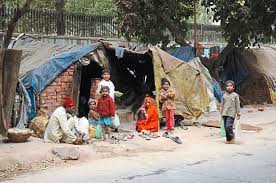Slum tourism, also known as “poverty tourism” or “slumming,” involves guided tours through impoverished areas or informal settlements within urban areas. These tours aim to provide insight into the living conditions, challenges, and culture of the residents. The ethical considerations surrounding slum tourism are complex and multifaceted, stirring debates among experts, activists, and tourists themselves.
On one hand, proponents argue that slum tourism sheds light on socio-economic disparities, fostering empathy and understanding among visitors. It’s seen as a way to raise awareness about poverty, inequality, and systemic issues that affect marginalized communities. Advocates believe that by exposing these realities, tourists might be more inclined to support charitable initiatives or advocate for social change upon returning home. Furthermore, it’s argued that some tours are conducted responsibly, with the involvement and consent of the local community, ensuring that the tours benefit residents economically.
However, ethical concerns arise due to the potential exploitation and commodification of poverty. Critics argue that these tours could perpetuate the objectification of poverty, reducing communities to mere spectacles for the entertainment of tourists. There’s a risk of invading the privacy of residents, exploiting their hardships, and capitalizing on their misfortune for commercial gain. Critics also highlight the unequal power dynamics between tourists, often from affluent backgrounds, and the residents living in impoverished conditions, questioning whether these tours reinforce existing power imbalances.
Additionally, there are concerns about the authenticity of the experience. Some argue that these tours might create a distorted portrayal of reality, emphasizing only the most sensational aspects of poverty while overlooking the resilience, diversity, and strengths of the community. The focus on poverty can sometimes overshadow the positive aspects and initiatives within these communities, further perpetuating stereotypes.
The ethicality of slum tourism heavily depends on the approach taken by tour operators, the respect shown to the community, and the transparency regarding where the profits from these tours go. Responsible and ethical slum tourism involves engaging with the community, obtaining their consent and participation, and ensuring that a significant portion of the revenue benefits the local residents directly through community development projects, education, or healthcare initiatives.
In conclusion, the ethicality of slum tourism remains a contentious issue. While some view it as a means of raising awareness and potentially supporting marginalized communities, others see it as exploitative and dehumanizing. Striking a balance between education, respect for the community, and a fair distribution of benefits is crucial in navigating the ethical challenges associated with slum tourism. Ultimately, responsible tourism practices, cultural sensitivity, and a focus on empowerment can contribute to more ethical and mutually beneficial interactions between tourists and the communities they visit.

